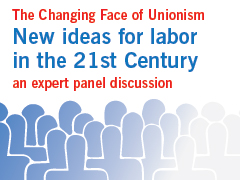
The call for entries for the 2014 Hillman Prizes is now open. The Hillman Prizes recognize outstanding achievements in socially conscious journalism in the following categories:
1. Book (bound volumes and ebooks)
2. Newspaper Journalism (story or series/in print or online)
3. Magazine Journalism (story or series/in print or online)
4. Broadcast Journalism (story or series/at least 20 minutes in total package length) Open to television, web TV, radio, podcast, and documentary film.
5. Web Journalism (publication/story or series/multimedia media project) Open to blogs, computer-assisted reporting, new investigative tools, mapping, crowd sourcing, and other multimedia media projects. Entries should feature both text and visual components.
6. Opinion & Analysis Journalism (any medium) Includes all types of advocacy, opinion, commentary and analysis, normally short-form and/or frequent, regardless of medium. Open to newspaper and magazine columnists, TV and radio presenters, podcasters, blogs, and bloggers.
7. The Canadian Hillman Prize. Awarded for outstanding journalism published in a Canadian media outlet.
All applications must be received by Jan 31, 2014, except applications for the Canadian Hillman Prize, which are due Jan 9, 2014.
The prize is a $5000 honorarium and travel to New York City to receive the award.
Full application details here.









